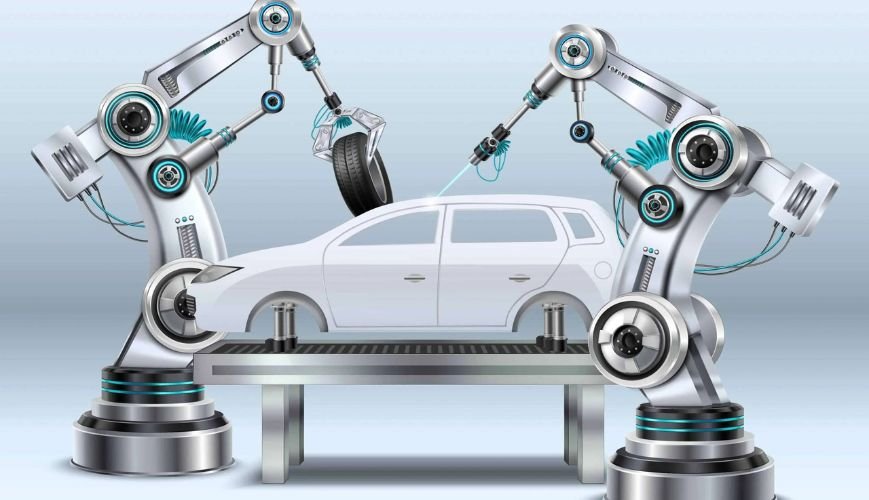Germany Automotive Composites Market Outlook
According to the report by Expert Market Research (EMR), the Germany automotive composites market size reached a value of USD 549.48 million in 2023. Aided by the relentless pursuit of efficiency, performance, and sustainability, the market is projected to further grow at a CAGR of 13.50% between 2024 and 2032 to reach a value of USD 1,719.17 million by 2032.
Automotive composites, materials made from two or more constituent materials with significantly different physical or chemical properties, are increasingly being used in the automotive sector to enhance vehicle performance, reduce weight, and improve fuel efficiency. In Germany, a global leader in automotive production and innovation, the adoption of these materials is being driven by stringent environmental regulations, the shift towards electric vehicles (EVs), and the continuous quest for competitive advantage through technological advancements.
The Germany automotive composites market growth is driven by several key factors. Firstly, the stringent CO2 emission standards set by the European Union are compelling automotive manufacturers to reduce vehicle weight, a goal that is effectively achieved through the use of composite materials. These materials, offering superior strength-to-weight ratios compared to traditional automotive materials like steel and aluminium, enable significant weight reductions, leading to improved fuel efficiency and lower emissions. Secondly, the burgeoning electric vehicle (EV) market in Germany is fostering a conducive environment for the use of automotive composites. EV manufacturers are particularly focused on maximising vehicle range, which can be significantly enhanced by reducing the weight of the vehicle through the use of composites.
As per the Germany automotive composites market analysis, while composites offer numerous performance benefits, cost considerations can delay its widespread adoption in the automotive sector. In Germany, efforts are underway to develop cost-effective composite manufacturing processes, optimise material usage, and scale production volumes to reduce overall costs. Collaborative research initiatives, public-private partnerships, and government funding programs support innovation and technology development in the automotive composites sector, driving down production costs and making composites more economically viable for mass-market vehicles.
Furthermore, the competitive landscape of the global automotive sector is driving innovation in composite materials, with manufacturers seeking to differentiate their vehicles through performance, safety, and sustainability, thereby posing a positive impact on the automotive composites market in Germany. The advancement in composite material technologies, including carbon fibre-reinforced polymers (CFRP) and glass fibre-reinforced polymers (GFRP), is enabling new applications in vehicle design and manufacturing.
Get a Free Sample Report with Table of Contents
Composite materials offer designers and engineers greater design freedom and flexibility compared to traditional materials, allowing for the creation of innovative and visually appealing vehicle designs, which also fuels the Germany automotive composites market expansion. In Germany, automotive manufacturers are exploring advanced design techniques, including topology optimisation, generative design, and parametric modelling, to optimise structural performance and achieve lightweighting goals while maintaining aesthetic appeal.
Looking ahead, the market is poised for continued growth, driven by technological innovations, regulatory pressures for more sustainable vehicles, and the evolving demands of the automotive sector. According to the Germany automotive composites market analysis, as manufacturers increasingly turn to composites to meet these challenges, the market is expected to expand, offering new opportunities for material suppliers, OEMs, and startups specialising in composite technology.
The shift towards sustainable and green manufacturing processes offers an additional opportunity for market growth. As per the Germany automotive composites market outlook, developing bio-based composites and enhancing the recyclability of composite materials are key areas where innovation can lead to increased market adoption and compliance with environmental regulations.
Germany Automotive Composites Market Segmentation
The market can be divided based on fiber type, resin type, manufacturing process, and application.
Market Breakup by Fiber Type
- Glass Fibre
- Carbon Fibre
- Others
Market Breakup by Resin Type
- Thermoset
- Thermoplastic
Market Breakup by Manufacturing Process
- Compression Moulding
- Injection Moulding
- Resin Transfer Moulding (RTM)
- Others
Market Breakup by Application
- Structural Assembly
- Powertrain Component
- Interior
- Exterior
- Others
Read Full Report with Table of Contents
Competitive Landscape
The EMR report looks into the market shares, plant turnarounds, capacities, investments, and mergers and acquisitions, among other major developments, of the leading companies operating in the Germany automotive composites market. Some of the major players explored in the report by Expert Market Research are as follows:
- BASF SE
- SGL Carbon SE
- Solvay Group
- Toray Industries, Inc.
- BMW AG
- Hexcel Corporation
- Teijin Limited
- Voith GmbH & Co. KGaA
- Muhr und Bender KG
- Others

